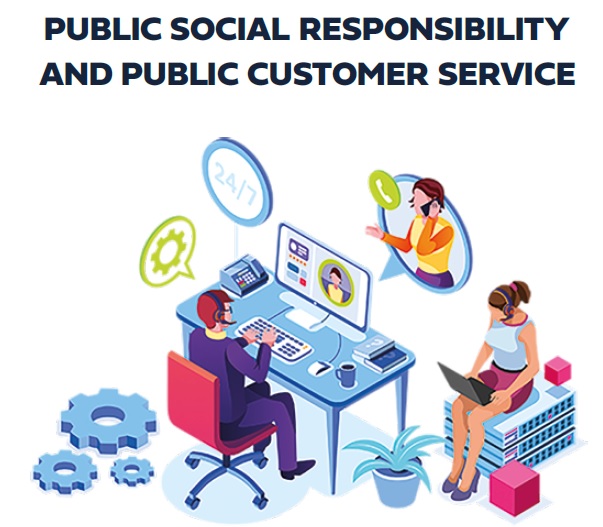The success of strategic cooperation in a transnational region depends on the degree to which certain social, economic and environmental factors are at almost the same level. And the functioning of the region is to a large extent determined by the functioning of the administration of the country concerned. The EU Strategy for the Danube Region (EUSDR) Priority Area PA9 has from its inception aimed at investing in human resources, in particular to ensure inclusive education, training and the creation of inclusive labour markets. However, achieving these goals is unthinkable without technological improvements and public sector ownership.
The new publication “Public Social Responsibility and Public Customer Service – A proposal to solve two critical social problems as part of the digital transformation” in support of PA 9 shows how the public sector is becoming a key actor in the coordination of cross-sectoral social responsibility and how Public Social Responsibility (PSR) is emerging as a new field of action for public administrations. On the basis of academic research, it is argued that Corporate Social Responsibility (CSR), which has a centuries-old tradition in the business sector, can also be understood in the context of public sector institutions. They show that performance beyond legal requirements and digitally-enabled public customer service in public administrations are an integral part of an increasingly inescapable PSR.
The two projects presented in this publication are good examples of social and technological innovation that complement and support each other effectively. The first is the so called OK (see „everything is all right”) Service, which provides direct information, advice, assistance or mediation at the level of the local area – small town, neighbourhood – in all possible situations. The other is the Service Visitor Point, which is a digital channel for this, using telepresence technology (VIVIEN telepresence kiosk) as a realistic substitute for face-to-face administration.
The publication was financed by the EUSDR Hungarian National Coordination in collaboration with the National University of Public Service, Hungary.





